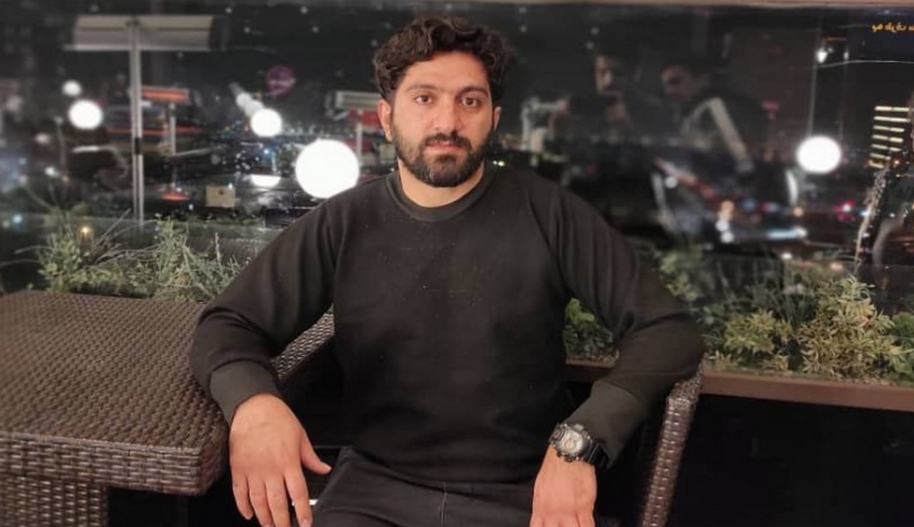Iranian Kurdish man Reza (Gholamreza) Rasaei is at imminent risk of execution in relation to the September-December 2022 nationwide protests. On December 16, 2023, Branch 17 of the Supreme Court upheld his conviction and death sentence for “murder”, following a grossly unfair trial that admitted his torture-tainted forced “confessions” as “evidence”. On December 31, his sentence was sent for implementation, amid an ongoing alarming increase in executions across the country.
Here’s what you can do:
Write to the Head of the Judiciary urging him to:
- Immediately halt any plans to carry out Reza (Gholamreza) Rasaei’s execution and quash his conviction and death sentence.
- Ensure that if charged with a recognizable criminal offence, proceedings must meet international fair trial standards without recourse to the death penalty and exclude “confessions” obtained under torture.
- Immediately grant Reza Rasaei access to his family, independently chosen lawyer, and adequate medical care.
- Protect him from further torture and other ill-treatment and investigate his torture allegations, bringing anyone found responsible to justice in fair trials.
- Grant independent observers access to capital trials connected to protests and immediately establish an official moratorium on executions with a view to abolishing the death penalty.
Write to:
Head of judiciary, Gholamhossein Mohseni Ejei
c/o Embassy of Iran to the European Union,
Avenue Franklin Roosevelt No. 15,
1050 Bruxelles,
Belgium
Salutation: Dear Gholamhossein Mohseni Ejei
Background
In the tumultuous period from September to December 2022, Iran witnessed an unparalleled popular uprising against the Islamic Republic system. The spark that ignited this wave of protests was the tragic death in custody on September 16, 2022, of Jina Mahsa Amini, following her arbitrary arrest by Iran’s “morality” police. The Iranian authorities responded with excessive force, utilizing live ammunition, metal pellets, and tear gas, subjecting protesters to severe beatings. Tragically, hundreds of protesters, including numerous children, lost their lives, with thousands sustaining injuries, many of whom refrained from seeking medical care due to fear of arrest.
Repression of Minority Communities
The oppression was particularly severe among the Baluchi minority in Sistan and Baluchestan province and the Kurdish minority in Kurdistan, Kermanshah, and West Azerbaijan provinces. Human rights groups reported a heightened securitized atmosphere in Kermanshah province from early November 2022, indicating increased repression by authorities ahead of protests commemorating the November 2019 protest killings.
As of now, eight individuals connected to the 2022 protests have been arbitrarily executed following grossly unfair trials marred by torture allegations. Milad Zohrevand, executed on November 23, 2023, faced charges related to a Revolutionary Guards agent’s death during the protests. Denied access to a lawyer after his arrest in Malayer, Hamadan province, Zohrevand’s case highlights a concerning lack of legal safeguards.
Human Rights Violations and Systematic Repression
Torture, a violation of international law, has been consistently used by Iranian authorities to extract confessions. The right to a fair trial, including access to legal representation, presumption of innocence, and examination of evidence, is routinely disregarded. Amnesty International has documented a pattern of systematic violations, where torture-tainted “confessions” are relied upon to issue convictions and sentences, even in death penalty cases.
Ethnic and religious minorities in Iran face entrenched discrimination in both law and practice. Recent execution sprees, with 115 people executed in November 2023 alone, indicate an alarming trend. Iranian authorities are intensifying the use of the death penalty as a tool of political repression, targeting protesters, dissidents, and oppressed ethnic minorities. The execution of Davoud Abdollahi on January 2, 2024, further exemplifies the authorities’ brutal tactics.
Call for Action
Amnesty International strongly opposes the death penalty, viewing it as a violation of the right to life and an ultimate cruel, inhuman, and degrading punishment. The organization calls on all states, including Iran, to establish an official moratorium on executions, working towards the complete abolition of the death penalty. The international community is urged to take action against the ongoing human rights crisis in Iran.













